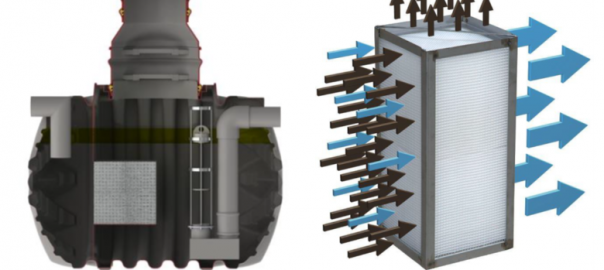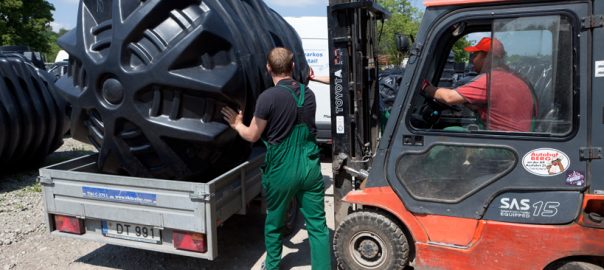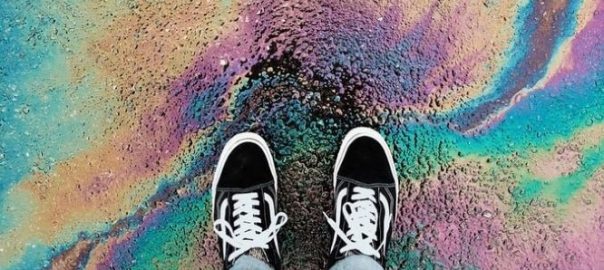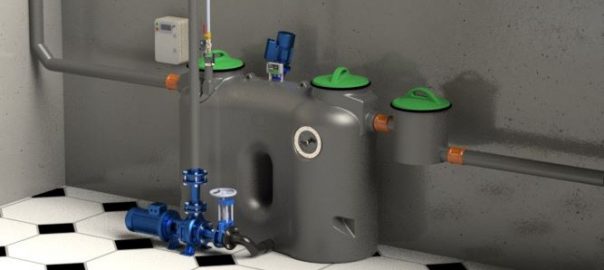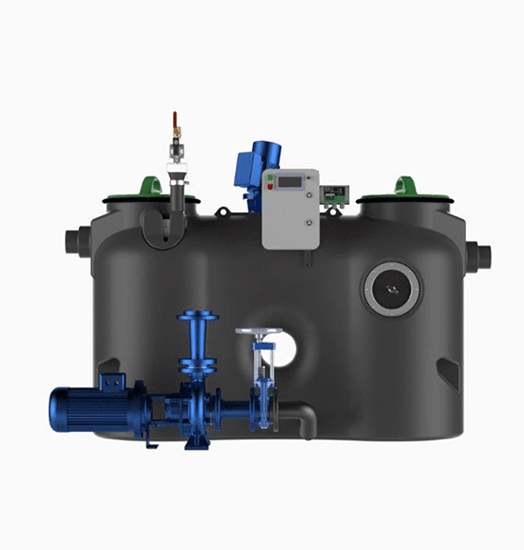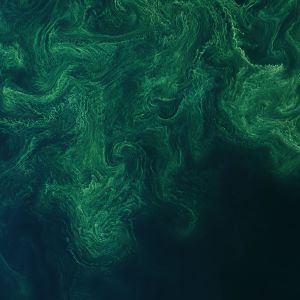
Why are oil pollutants a threat to the ecosystem?
Information about large oil spills we usually find out from TV or newspaper headlines. But how about small spills? For example, oil dripping from a car in a parking lot, small spills when refueling at a gas station, or used oil being stored in leaks in garages? It seems like everyday life, but even small amounts of oil are harmful to the ecosystem.
Unfortunately, due to human economic activity, small oil spills from car repair shops, parking lots, garages, gas stations are inevitable. The most important thing is that the spilled pollutants are removed in oil/water separators, otherwise the oil will be washed away by rainwater and enter the surface water bodies or absorbed into the ground through the sewage system.
Phytoplankton create swirling art in the Baltic Sea
August 15, 2020. Swedish coast

What damage does an oil pollutants cause?
Water pollution
The layer formed by the spilled oil on the water surface blocks the light, thus reducing the phytoplankton. Phytoplankton receives energy during the process of photosynthesis and must therefore live only in a well-lit surface layer of oceans, seas, lakes, or other bodies of water. Phytoplankton performs half of all photosynthetic activity on Earth. Thus, phytoplankton replenishes water bodies and the earth’s atmosphere with oxygen.
Phytoplankton is also an important part of the food chain for small aquatic animals (e.g. shrimp) and is already fed by larger aquatic animals (e.g. white whales). Scientists observe that phytoplankton declines by almost 1% annually. This may be related to water pollution and the impact of global warming on ocean temperatures.
In addition, oil products thrown ashore contaminate beaches. Oil also causes great damage to waterfowl, as they inevitably absorb oil products, which disrupt the liver and kidneys of aircraft. This usually kills the birds.
Soil contamination
Oil particles entering the soil can cause long-term damage. Oil reduces soil aeration and water penetration. This prevents plants and other organisms in the soil from getting the water and air they need to survive. This can continue for many years and reduce agricultural productivity.
From the above, we see the need to make every effort to protect the environment from pollution by oil products through the use of efficient oil separators (e.g. SEPKO oil/water separators manufactured by Eneka).



